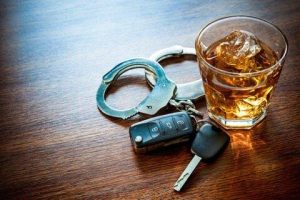- Contact Us 832-381-3430 Tap Here to Call Us
DWI Probation in Texas: What To Know

If you’re lucky, your first DWI conviction in Texas may result in probation rather than jail time. This does not mean you’re out of the woods, though. Texas DWI probation requirements can be strict, and if you violate your probation, you are likely to end up in jail. Here is what you need to know:
Conditions of Probation
In Texas, probation is officially known as “community supervision.” Texas law sets some requirements on everyone who is sentenced to probation for DWI. Some requirements may be waived by the judge for good cause. Others are mandatory. In addition, judges have many conditions that they may choose to set. Therefore, each offender’s case may result in slightly different conditions of probation. The following are the most typical:
- Drug/alcohol dependence evaluation (typically 30 minutes to one hour)
- Three 4-hour DWI education classes (to be completed within 6 months, regardless of the length of probation)
- Fines and court costs (typically around $1,000)
- Community service (24 to 100 hours)
- M.A.D.D. Victim Impact Panel (one 3-hour session)
- No drinking or drug use
- Ignition interlock device installed in vehicle, with notation on driver’s license that only vehicles with this device installed may be driven
- Random drug testing
- No other offenses
- Monthly meetings with probation officer
- Remain gainfully employed and support all dependents
- Avoid injurious behavior and people of “immoral” character
- Submit to home and work inspections by probation officer
- Notify the court of any changes to home address or employer
- Receive permission before leaving the county
Probation Length, Violations, and Non-Reporting Status
In Texas, probation for a first DWI may last from 6 months to 2 years, depending on a wide range of factors. Any probation violation is taken very seriously and will likely result in jail time. Besides failing to report to your probation officer or leaving the county without permission, the most common probation violations have to do with the ignition interlock device in your car.
The ignition interlock device requires drivers to blow into it before starting the car. It will register the BAC, blood alcohol content, before starting the car. The results are recorded, so in addition to being unable to start your vehicle, blowing into it with alcohol in your system will likely get you an appearance before the judge and possibly a probation violation. However, in certain circumstances, a false positive may occur.
If you use a mouthwash with alcohol in it, for example, your breath will retain some of that alcohol even if you do not swallow a drop. Therefore, those with ignition interlock devices are usually required to complete another test 15 minutes later. If you had a false positive due to residual mouth alcohol, it will be gone, and your alcohol reading will drop to zero. If you were actually drinking, the alcohol will not yet be out of your system and you will still test positive.
It is very important to complete the mandatory 15-minute retest to avoid getting in trouble for a false positive. This is one of the easiest ways to accidentally violate your probation, so take it seriously.
If you are accused of violating your DWI probation, call your attorney right away. The sooner we step in, the more options we have available to help you.
Note that in Texas, judges do not have the legal authority to end DWI probation early. In some counties, though, you may be eligible to go on non-reporting status and have the ignition interlock device removed from your vehicle once you complete all the terms of your probation. Discuss this possibility with your attorney if you feel it may apply to you.
With 6 years of experience as a Harris County prosecutor and 11 years of experience representing clients in a variety of family, domestic, and criminal cases, past president of the Montgomery County Bar Association, Andrea Kolski, has the background you need to win your case. For more information or to schedule a consultation, callNonstop Justice today at 832-381-3430.









